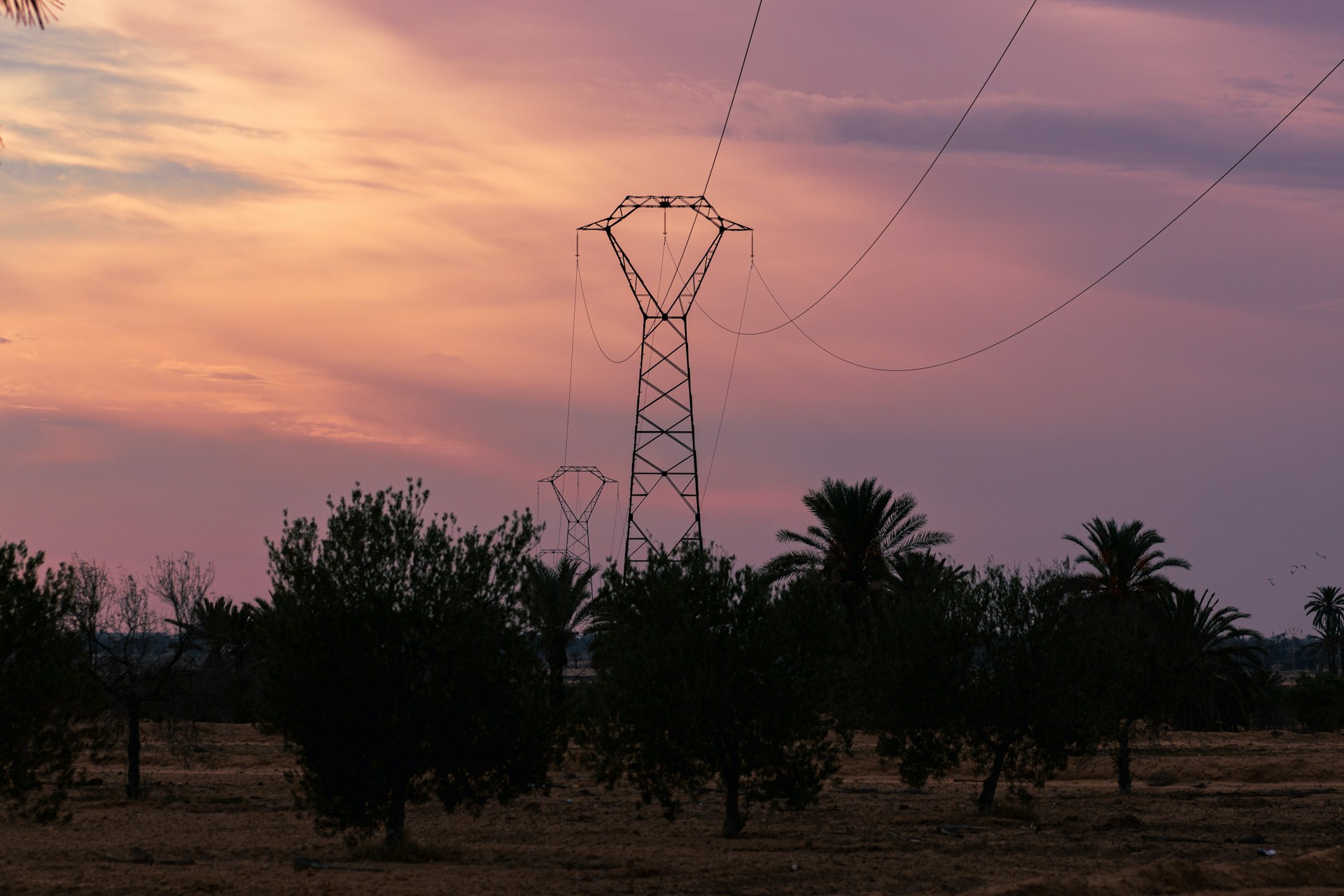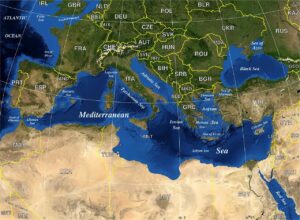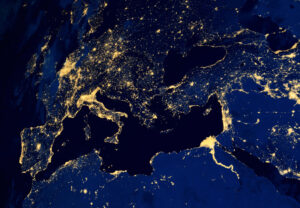These recommendations were developed with input from the Mediterranean Alliance of Think Tanks on Climate Change – MATTCCh and other experts/government representatives from civil society and industry in Europe and the MENA region.
Read the policy briefing “EU energy cooperation in the Mediterranean: unlocking the benefits of the new energy landscapes”
Mediterranean energy dynamics are undergoing a revolution as the region’s immense renewables potential begins to be tapped. This energy transition can help unlock opportunities across Europe and the Mediterranean, addressing industrial competitiveness, energy security and climate risks while boosting job creation, regional stability and economic resilience. The key to achieving these benefits: delivering a well-managed transition that is mutually agreed and provides an innovative vision for regional cooperation. It is crucial that the EU sets the right course in its upcoming strategies: the New Pact for the Mediterranean and the Trans-Mediterranean Energy and Clean Tech Cooperation Initiative.
The Mediterranean energy landscape is undergoing a significant transformation. On the Northern shore, Europe’s commitment to decarbonisation and ending reliance on Russian fossil fuels is changing what types of energy it needs and who 1 Union for the Mediterranean, First-ever Mediterranean Green Week gathered 150 on quest for sustainable future it partners with to secure this. The 2021-23 gas crisis demonstrated the damaging impact of volatile gas prices on European industry, while Europe is also seeking new supply chains to de-risk from competitors and avoid weaponisation. Meanwhile, across the Mediterranean, governments, companies and individuals are increasingly tapping into the region’s immense clean energy potential.
However, the benefits of closer energy cooperation between the EU and wider Mediterranean go far beyond security of energy supply and export opportunities. Bidirectional electricity interconnectors can improve region-wide energy security; industrial growth powered by clean energy can create new pan-Mediterranean supply chains and jobs in both the EU and the wider Mediterranean; and strengthened partnerships rooted in clean energy and cleantech manufacturing can sustain long-term regional stability as fossil fuel[1]producing countries in the region are hit by declining EU demand.
In this context, the EU’s current interest in stepping up cooperation with the Mediterranean is a major opportunity to drive forward region-wide delivery of these energy transition benefits. For the first time, the EU has a Commissioner for the Mediterranean and a policy department dedicated to the MENA region (DG MENA).
The EU’s revamped focus on its Southern Neighbourhood will be reflected in a New Pact for the Mediterranean expected towards the end of 2025 – 30 years after the Barcelona process that launched the Euro-Mediterranean Partnership in 1995. The Pact will aim to re-energise the relationship between the EU and Southern Mediterranean countries and adapt it to the current geopolitical and geoeconomic context. The New Pact will cover areas including security, migration, economic growth and human development. Among these, the energy transition will also play a pivotal role, with DG ENER, the European Commission’s energy policy department, leading on a Trans-Mediterranean Energy and Clean Tech Cooperation Initiative, scheduled for early 2026. This will complement the New Pact.
What are the key components of the EU’s policy toolbox for more effective Mediterranean energy diplomacy? Our recommendations:
- Just energy transition as a central principle. The EU’s approach should centre on the potential for a just energy transition to help deliver the EU’s geopolitical, security and economic goals in the Mediterranean. Achieving this requires full transparency on future EU energy demand, cooperation on boosting energy efficiency, and tailored support for countries shifting away from fossil fuels.
- Support for a regional renewable energy target. The EU should back a Mediterranean-wide renewable energy target, like the TeraMed goal aiming for 1TW of renewable generation capacity by 2030. The EU can use this to drive large-scale public and private investment in renewables.
- Energy interconnectedness for security. The EU should primarily think of energy interconnectedness as a way to boost security and flexibility, rather than as a means simply to extract renewable energy from partner countries. A more connected grid would improve resilience, lower costs and enhance energy security across the region.
- Linking renewables to industry and jobs. Renewable deployment should support industrial growth and local value creation in Southern Mediterranean partner countries. This includes supporting clean industry to maximise local benefits and build competitive pan-Mediterranean supply chains.
- Financing the transition. The EU needs to mobilise its full toolkit to bring in financing for Mediterranean energy transition. Beyond new financing, this can include raising the visibility of existing European funding to implementers and assisting partner countries to mobilise domestic financing.
How can the EU use its tools to create region-wide benefits? Our recommendations:
- Pan-Mediterranean vision. As well as strengthening bilateral partnerships, the EU should establish a region-wide vision for the Mediterranean, backed by a stronger multilateral dimension. This includes actively co-creating the New Pact with stakeholders from partner countries, reinforcing South-South cooperation and exploring EU trilateral cooperation with regional actors. At an EU level, the Council should empower the Commission through a Council Decision to lead EU-wide delivery by bringing coherence between EU and Member State visions and resources.
- Climate at the heart of the strategy. Climate must be central to the EU’s approach, recognising it as key to long-term security, stability and development rather than as a sectoral issue. The strategy should include a component on climate adaptation and harness the economic and development potential of the energy transition – drawing on lessons from the EU Green Deal and the emerging Clean Industrial Deal.
Read the policy briefing “EU energy cooperation in the Mediterranean: unlocking the benefits of the new energy landscapes”
The policy briefing “EU energy cooperation in the Mediterranean: unlocking the benefits of the new energy landscapes” was edited by Richard Smith, Policy Advisor at E3G, and Lorena Stella Martini, Senior Policy Advisor Foreign Policy.
Photo by Mohamed Fsili







